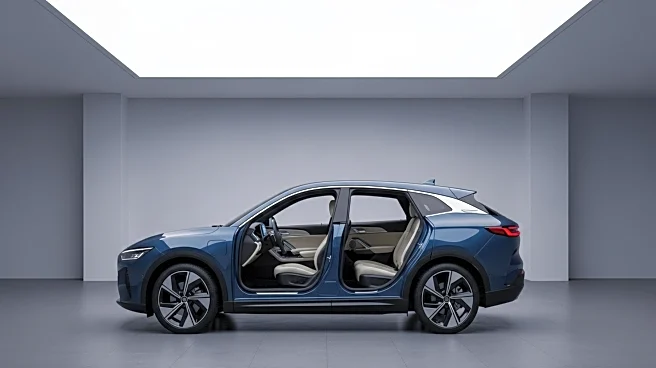What's Happening?
Nissan has announced the withdrawal of its Ariya electric SUV from the US market for the 2026 model year. This decision is attributed to President Trump's implementation of a 15% tariff on Japanese-built electric vehicles. Nissan plans to halt imports of the Ariya, reallocating resources to support the launch of the new 2026 Leaf, which will have the lowest starting MSRP among new EVs in the US. Despite a 47% increase in Ariya sales from the previous year, the company sold fewer than 20,000 units in 2024, which a White House official claims is insufficient to justify its continued presence in the market. The Ariya, assembled in Japan, is now subject to the new tariff under the US-Japan trade framework.
Why It's Important?
The withdrawal of the Ariya from the US market highlights the impact of trade policies on the automotive industry, particularly in the electric vehicle sector. The 15% tariff imposed by President Trump affects Japanese imports, potentially altering market dynamics and consumer choices. This move may influence Nissan's strategic decisions and resource allocation, affecting its competitiveness in the US EV market. The tariff could also impact the broader US-Japan trade relations, as it forms part of a larger agreement involving significant investments and purchases of American goods by Japan.
What's Next?
Nissan has not yet decided whether the Ariya will return for the 2027 model year. The future availability of the Ariya in the US may depend on Nissan's financial situation and whether the tariffs remain in place. Additionally, Nissan's production plans for other electric models, such as the new Leaf and two electric crossovers, are affected by battery procurement issues and export restrictions from China. The evolving trade policies and market conditions will likely influence Nissan's strategic decisions and product offerings in the coming years.








